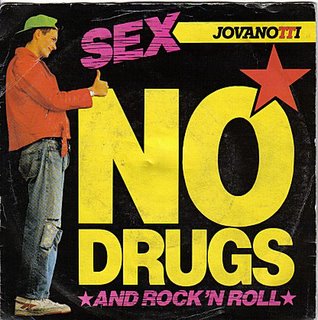One road to permissiveness: a dead end?

Most of us who have grown up in the sixties tend to view the evolution of morality in our time as just one road straight ahead. With many conflicts we struggled our way out of the legacy of the Victorian age which had imbued us with huge inhibitions and which had created a society of emotional rigidity and moral intolerance unparalleled in history. Never again would we allow ourselves, or our children, to be denied the full experience of life, however trivial, however damaging perhaps to our health, however destructive to the fabric of society. First and foremost are our spiritual freedom and the claim of each individual to pursue his or her own leisure, whether in the cerebral, social or sexual dimensions of our lives.
The Dutch in particular have become rather infamous in taking this quest for freedom and permissiveness to the extreme. We have been very true to our role in history in this respect. Yet even in my country, the tide has turned. To some extent, this development is influenced by the greater complexity of our society as compared to the situation in the sixties. Most notably, the influx of people of vastly different cultures has created new conflicts and has increased sensitivities on how people behave, even in private, and thus it has raised the issue of tolerance, including the tolerance of people’s behavior within our own, indigenous culture at the same time. To put it bluntly: if our permissiveness especially stimulates destructive behavior of people of other cultures living in our own country, how can we contain this if we do not restrict the behavior of everybody? When it comes to it, discrimination is a far greater evil than permissiveness. Murders have been committed that shook society, and they have been committed by a white Christian male and a brown Muslim male respectively..
But even without this additional ethnic or cultural issue, it seems our tendency towards freedom and permissiveness has reached the end of the road. In particular this is the case in respect of our lenient policies and practices on drugs. But it pervades the other realms as well.
Only recently, within a weeks time, Dutch cabinet ministers and senior party officials came up with no less then three proposals limiting our civilian freedoms. First, there was the minister who aired the idea of forbidding the sale of alcohol to all minors; secondly another minister wanted to introduce the rule of Dutch language only in public spaces (good for tourism!), and third there are people who want to limit religious freedom, especially where it concerns religious expressions that are hateful to women.
It is obvious that any public incitement against the integrity of women is already forbidden by law. There is no need for any additional safeguard, let alone for some frantic limitation of our religious freedoms. In particular, thoughts like these, coming from people who claim responsibility for our government policies, illustrate most clearly that we are gradually losing sight of the essence of freedom and tolerance in our society. Xenophobia is taking grip even of people who would normally have reasonable opinions, and in giving in to it we are setting the most horrid examples particularly to whose of whom we wish that they accept our rules of law and of decent behavior.
To me, permissiveness is not the ultimate issue. We should continue to ask ourselves whether as human beings we should be in the business of permitting or forbidding any other human being on any aspect of his or her behavior. Obviously there are limits, and to a large extent the ancient rules suffice: Thou shalt not kill etc. Nor do I feel that speaking about permissiveness in general terms is at all helpful. In some respects the Dutch may have been highly permissive, in other respects we are not quite as tolerant as some make us to be.
The larger issue in my view is the degree to which we wish to encourage cohesion in morality and behavior, and to what extent we allow individuals in ours society to have their own experiences. In both dimensions, serious interests – in every society – are at stake. I also believe that behavior is not a static phenomenon. Most people go through certain phases in their lives, and some of us want to learn from ‘bad’ behavior in order to – eventually – find the ‘good’.
All of this, to me, would tend to a twofold approach at all times. Permissiveness – allowing for freedom in a large measure for everybody – should go hand in hand with greater public awareness of morality, social cohesion and social responsibility. We all cross the thresholds at one or more points in our life. What really matters, is whether we learn from it.


0 Comments:
Post a Comment
<< Home